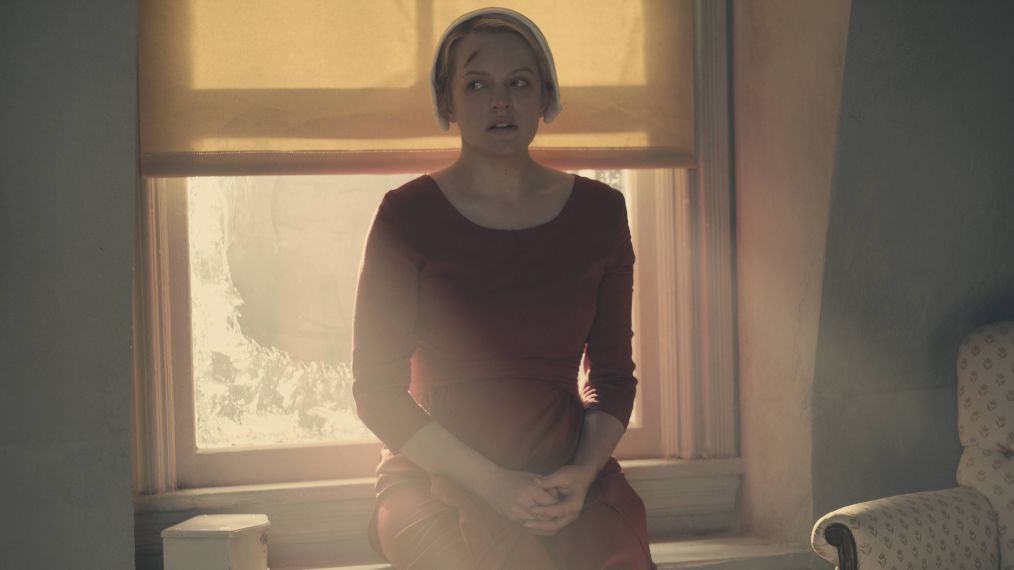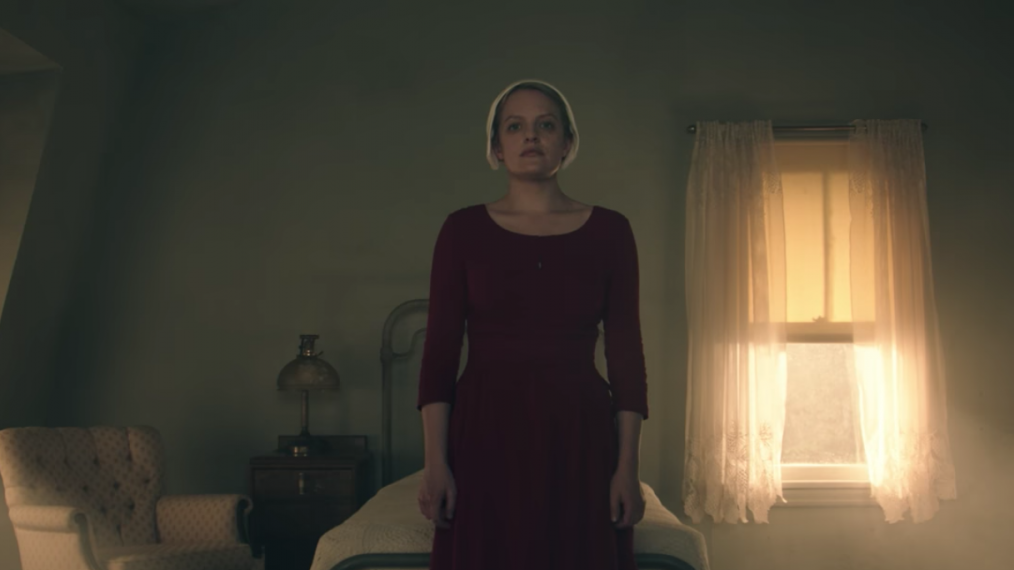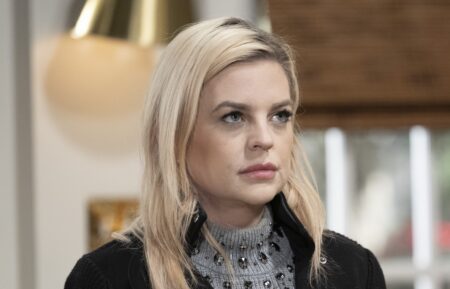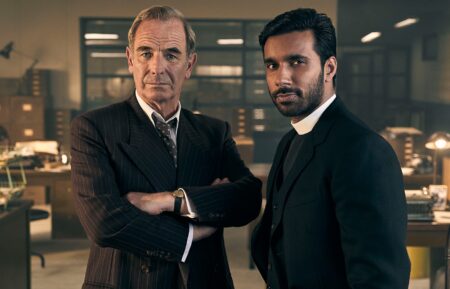The Biggest Questions We Have After ‘The Handmaid’s Tale’ Season Finale

Spoiler Alert
The season finale of The Handmaid’s Tale dropped Wednesday, so consider yourselves spoiler-alerted: If you haven’t seen it yet, pop a Xanax and get on that.
Ever since it was announced that the show had been picked up for a second season, the big question has been about how the creators would expand the story in Margaret Atwood’s 1985 novel. It’s probably safe to say that, at least initially, most people sort of assumed that Hulu’s adaptation would be a miniseries—or a one-and-done, I guess is the industry term these days.
The book, after all, is pretty insular, containing only hints at the larger world beyond Gilead, beyond Offred’s claustrophobic perspective. Where could showrunner Bruce Miller take the story in a second season? Would he and his writers room try to stretch the story as it appears in the novel over more than one season, like Brian Fuller and co. are planning to do on American Gods?
Well, after Wednesday’s episode we know that that last option is off the table. Season 1 of The Handmaid’s Tale more or less covers the material in the novel. A few memorable details are missing—butter as moisturizer; Offred’s memories of her mother—but as adaptations go, the show basically hit all the major story beats.
What is probably most surprising is how directly the final moments of the season correspond to Offred’s final moments in the book. The episode takes its title, “Night,” from the novel’s last chapter. The circumstances surrounding it are different, but Offred’s arrest is lifted directly from Atwood’s text, right down to the dialogue and Elisabeth Moss’ voiceover.
“Whether this is my end or a new beginning, I have no way of knowing. I have given myself over into the hands of strangers. I have no choice. It can’t be helped. And so I step up into the darkness within; or else the light.”
Those are the last words we hear from Offred’s perspective, but it’s not the end of the book. What follows is a peculiar coda, set decades after the fall of Gilead, that takes the form of an academic presentation discussing the preceding narrative. We learn that Offred’s tale was constructed from a collection of cassette tapes found in a locker in Maine, and there are hints at a purge of corrupt Commanders around the time of her possible escape along the “Underground Female Road.” We also get a sense of the wider world, obliquely, through references to safe havens in Canada and England.
The afterword ends with a line that is effectively a kind of thesis for the show’s second season: Are there any questions?
Why, yes, there are questions. Lots of them. Even the show’s cast has questions. “I want the series to answer some of the millions of questions I have as a fan of the book,” O-T Fagbenle, who plays Offred’s husband Luke, said when I spoke to him last month.
The novel’s ending is purposefully ambiguous, so questions are kind of the point. But with its second season, the show is poised to provide some answers—and inevitably pose further questions. The Handmaid’s Tale has already hinted at where it might be going in future seasons. Episode 7, “The Other Side,” follows Luke’s escape to Canada, and in the finale, Moira (Samira Wiley) manages to find her way there as well, where she is reunited with Luke at a refugee center. Season 2 will almost certainly pick up their story up north, presumably exploring their efforts to find Offred/June and Hannah.
Speaking of Hannah, having seen her daughter at a distance and having absorbed the threats made by Serena Joy (Yvonne Strahovski), there’s no way Offred is leaving Gilead in that black van without her. Now that she’s made contact with the resistance known as Mayday—that’s who Nick (Max Minghella) tells her she’s going with at the end of the book—Season 2 could find Moss’ character using their resources and network to free her daughter before fleeing the country.
Commander Fred (Joseph Fiennes) is a far more overtly sinister character in the show than he is in the book—his cartoonish name notwithstanding—where Atwood portrays him as more of a put upon father figure. Serena Joy, on the other hand, is given a more nuanced treatment as played by Strahovski. The rift that’s clearly widening between them—Serena’s dissatisfaction with her role in the society she helped to shape, her resentment of the Commander and his assertion of authority over her—is going to be interesting to explore in future episodes. And let’s be honest, we’re all dying for Serena Joy to get woke!
Then there are characters like Janine (Madeline Brewer) and Emily (Alexis Bledel), both of whom the show keeps refusing to kill off. What’s to become of them? Will they be posted with new households? With Offred plunged into the shadowy world of Mayday and possibly the Underground Female Road, they, along with Rita (what’s she gonna do with those letters?), and Alma and the rest of the Handmaids could be our link to the day-to-day lives of the women still trapped in Gilead.
The rebellion brewing among the Handmaids is essentially an invention of the show. The book, again, is incredibly insular, its narrator a far more passive character focused primarily on the small tactics that get her through each day without losing her mind. There is none of what some critics have ambivalently called the show’s “girl power” tone. Which gets to the biggest question of all: What will The Handmaid’s Tale…be in future seasons? The show is already much more of a thriller than the book. As the story expands beyond the Commanders’ households, beyond Gilead’s borders, what kind of show will this be? We have no way of knowing. Like Offred, we have given ourselves over into the hands of strangers.
The Handmaid’s Tale, Hulu










